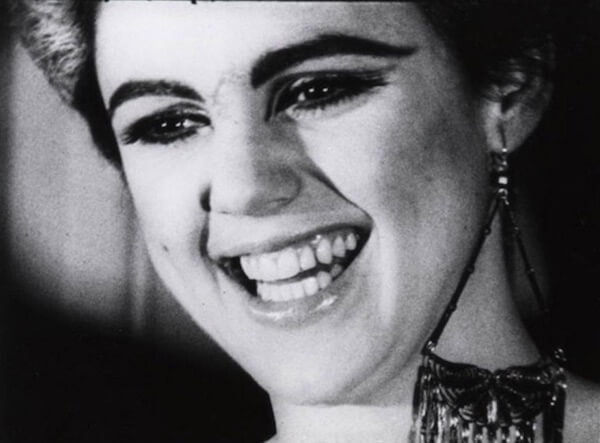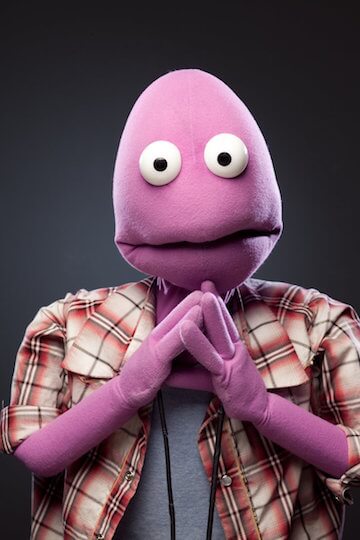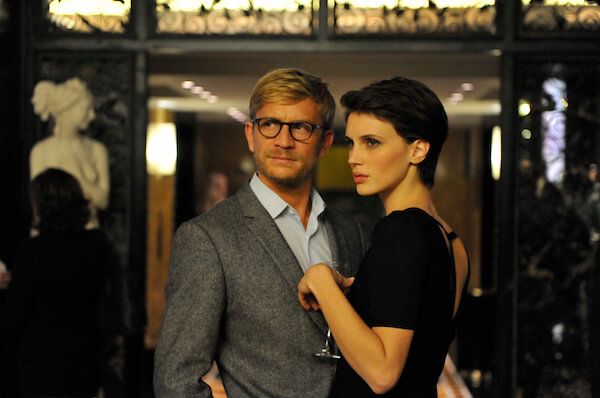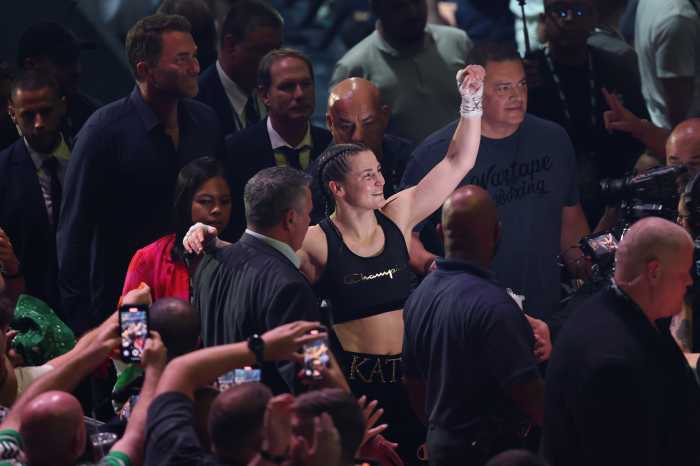Tristan Ferland Milewski’s “Dream Boat” chronicles the stories of five men on a gay cruise. | GEBRUEDER BEETZ FILMPRODUKTION/ STRAND RELEASING
The documentary “Dream Boat,” by out director Tristan Ferland Milew-ski, depicts experiences a handful of men have on a week-long gay cruise in the Mediterranean. This terrific film chronicles several parties, from a fun drag event to a neon-themed one, as well as plenty of skin and sex, including a brief scene of fellatio.
The five subjects that Milewski follows — Marek, Dipanker, Philippe, Ramzi, and Martin, each of them winning in their own way — reveal their dreams and anxieties about being single gay men who in some cases are not out to their families or co-workers. The men are all looking for a connection while basking in the safe space of a gay cruise.
Tristan Ferland Milewski documents the dreams, disillusions of a gay cruise
As their stories unfold, a Greek chorus consisting of other passengers discuss topics ranging from youth and aging to beauty, gay stereotypes, and stigmas about HIV. Their insights are poignant, affecting, and universal.
Milewski spoke via Skype with Gay City News about his insightful film.
GARY M. KRAMER: Why did you decide to use the crucible of a gay cruise to discuss the attitudes of gay men?
TRISTAN FERLAND MILEWSKI: As a director, I’m generally interested in microcosms. They have their own codes and rules, but they mirror the rules of a larger society. They reveal things about our entire society — not only gay men.
I also like to look behind the obvious or the visible. You might expect something when you hear it’s a film about a gay cruise, but I look beyond that. The cruise is a safe space for the people from various nations, but it also means that, after all the freedom and expectations, there are rules, so it’s a boat of dreams and disillusions. This tension is what I found interesting.
GMK: How did you find the subjects for the film?
TFM: For me, what was important was a certain diversity in age, background, and relationship status. I wanted all of them to have an inner urge — a special emotional meaning to go on this boat.
GMK: What observations do you have about how you approached the film? You have interviews, observational footage, the voice-overs, and parties, parties, parties.
TFM: What I found interesting was showing this place of desire and longing, and this glamorous moment of self-representation on deck, and the silent moments below deck in the cabins and hallways. The contrast of those two worlds was very appealing. It shows the layers and how fragile this world of dreams was.
GMK: “Dream Boat” addresses elements of pride, but mostly the concerns are body shaming, disability, drag, as well as gay stereotypes. How do you think your film will change minds of gay men who play into these behaviors?
TFM: That is the tension. I think these issues are important to the gay community because they are part of the gay community. Guys question their masculinity. They have internalized homophobia. There is gender performance, repression, and belonging. It’s very complex. We all feel these things — even those who play the game. The emotions I bring have a truth and authenticity.
GMK: Can you talk about how the gay community is excluded and exclusive?
TFM: If you look at Western society, and the selfies, and how we throw ourselves on the market as a commodity, everybody wants to be seen and loved. All the subjects are drawn to the desire to live and love as they are. In the end, in this meat market, you get emptiness in return. This is the trap of the gay society, but it’s also universal.
GMK: “Dream Boat” really captures the loneliness and jealousy of many of the men. It’s sad that all these gay men are together, but despite the pride, the sense of community, and the boat being safe space, there are men who feel they don’t belong. Can you talk about that?
TFM: It definitely is a film about not belonging, which I think is something we all know. But in the end, it’s empowering. It’s about how do I position myself? It’s about identity. How do I want to be a gay man? It’s a journey of empowerment and catharsis. It’s intense. When you question how you present yourself — what kind of gay man do I want to be? — it’s not tragic, it’s wonderful.
GMK: The film has a very casual approach to nudity. What was your purpose in capturing all the skin?
TFM: [Laughs.] In the end, you feel the sexual tension all the time, but on the other hand the film is not so much about sex as you might expect. This is the balance I wanted to create: the physical presence of constant sexual tension, but not be upfront about it.
GMK: There are several comments about gay men’s obsession with looks and youth. What observations do you have about masculinity?
TFM: What I found interesting was that on one hand, I think it’s this hetero-looking, straight-acting is internalized self-discrimination. We carry a bit of society with us, so I wanted to bring it up. The ladies night [drag] party is the biggest night. It’s liberating and playful to be in a dress and question masculinity. When someone says, “A real male likes to dress like a lady,” it shows we are beyond gender binary thinking. If you are secure in your masculinity, you should not be afraid of your feminine side. You can be non-binary.=
GMK: Your film briefly addresses HIV. How do you think the stigmas about HIV have changed?
TFM: I think this is a complex topic, but it’s important to get rid of this stigma and know that people can have a good quality of life and that prevention is treatment to remove the stigma.
GMK: Did making this film change your mind about gay stereotypes?
TFM: It was a bit of a quest, and I think in the end the film confirmed that we all have the same universal questions and the truth is beyond stereotypes.
GMK: Did you make a conscious decision not appear be in your film?
TFM: [Laughs.] Yes. I prefer to stay behind the camera.
DREAM BOAT | Directed by Tristan Ferland Milewski | In German, French, and Arabic with English subtitles | Strand Releasing | Opens Nov. 3 | Quad Cinema | 34 W. 13th St. | quadcinema.com






























